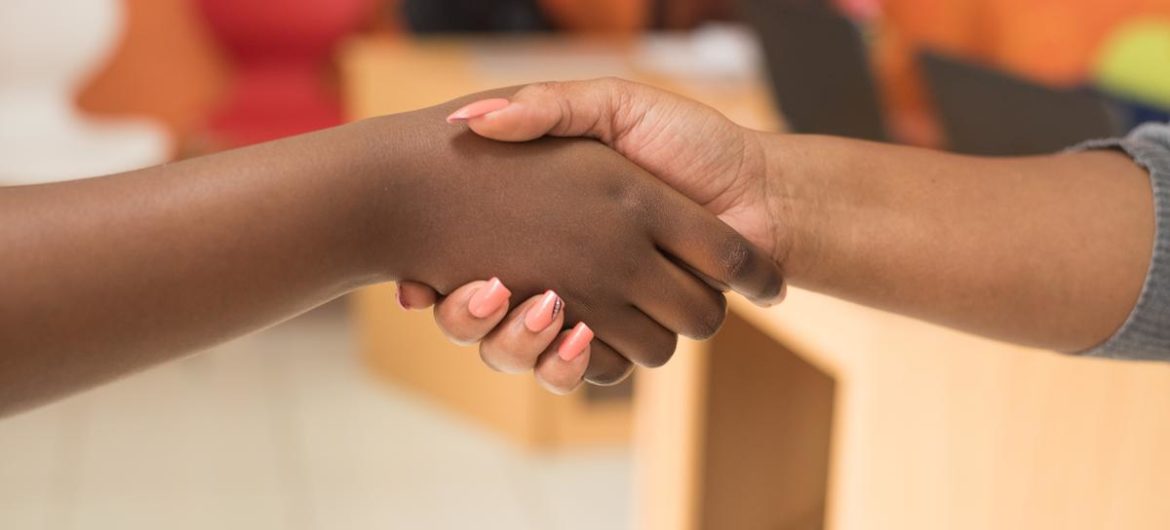Social scientists have warned that the coronavirus pandemic could spell the end of hugging and handshakes for years to come.
Measures to prevent the spread of coronavirus, including bans on physical contact, could change human behaviour in social situations, they say.
A heightened awareness of infections after the pandemic could mean the so-called COVID-19 generation may be nervous about physically greeting friends and family.
Experts say the long-standing handshake could be replaced by an awkward nod or elbow bump in all settings, including professional settings such as business meetings and conferences.
Concerns about keeping surfaces disinfected could also lead to compulsive cleaning behaviour and sustained sales of sanitisers.
In the UK, social distancing measures could be enforced on and off for six months or more, scientists have revealed.
Now experts warn the longer these measures are in place, the more likely we are to adopt habits that are hard to shake.
‘I think we are likely to wash our hands more and more carefully for quite a long time to come, Robert Dingwall, a professor of social sciences at Nottingham Trent University, told CNET.
‘I don’t think physical distancing will persist, although it was already increasing as a result of #MeToo.
‘We probably won’t keep six feet away from others but I don’t think we will hug them as often as five years ago.’
If lockdowns last less than six months, long-term changes could be increased hygiene – which may not be a bad thing.
However, if precautions to tackle the pandemic last any longer than this, the results may be more irreversible.
‘If it lasts 18 months or more, as the more pessimistic forecasts suggest, more substantial changes are likely in both social distancing, social interaction and hygiene,’ said former American Sociological Association president Joe Feagin.
A lack of physical contact could have even more damaging emotional effects on young people who benefit from physical demonstrations of love and support.
‘Handshaking may already be a thing of the past,’ Pamela Paresky, visiting social sciences lecturer at the University of Chicago, told CNET.
‘There is a reason babies suffer both physically and mentally when they do not experience enough physical contact,’ she said.
‘Human being need physical touch, in-person social contact and interpersonal intimacy.

‘These things are necessary for our ongoing emotional and physical well-being.’
The ‘extreme physical distancing and isolation’ as part of official government measures introduced around the world isn’t sustainable, Paresky believes.
An increased use of technology can help to counter any serious long-term effects and maintain social contact during the distancing period.
This can be done through video chats, more phone calls, virtual dinner parties or pub quizzes.
In the UK, social distancing measures that are aimed to stop the spread of the illness, known as COVID-19, have shut down pubs, bars, gyms and non-essential shops.

Police have the authority to fine people who are not out on the street for a good reason, such as shopping for bare necessities or getting essential medical supplies.
The government says people should only go outside for food, health reasons or work – but only if they cannot work from home.
Those who are outdoors should stay 2 metres (6 feet) away from other people at all times and wash their hands when they get home.
Brits should not expect to get back to ‘normal life’ for six months or even longer, the government’s deputy chief medical officer warned at the weekend.
Social distancing measures could last on an on-and-off basis until October or even longer, Dr Jenny Harries told a Downing Street press conference.
It will not be clear whether the ‘social distancing’ lockdown is working for another two or three weeks – after Easter – with deaths set to rise further.
The current UK death toll from COVID-19 reached more than 1,200 at the weekend.
-Daily mail




